- Administrator
- Albums and Singles
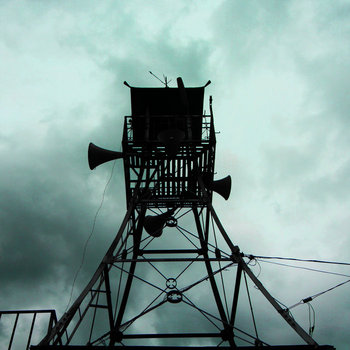
"Jim O'Rourke returns with his first physical solo album since 2015's Simple Songs, following a relatively steady supply of download-only releases via his Steamroom Bandcamp (over 20 of them since 2015) and collaborations with John Duncan, Keiji Haino, Oren Ambarchi, Peter Brötzmann, Merzbow, Fennesz and others in the interim. Anyone familiar with his exceptional Steamroom output will have an inkling of what to expect here; this is Jim O'Rourke at his most meditative, absorbing and quietly subversive, making use of little more than synthesizer, pedal steel, piano and shortwave radio for one extended 45 minute piece (punctuated by a few moments of silence) designed to mess with contemporary notions of "ambient" music.
Sleep Like It's Winter took O'Rourke two years to construct after being approached by the fledgling Newhere label to submit an ambient album. As he explained recently in an interview with ele-king: "I didn't set out to make an ambient record but it's sort of about making an ambient record more than it's an ambient record (laughing) you know? Pretty much everything I do is about what it is as opposed to being it. Just making any record in terms of "make a record in this genre" is anathema to me, but I decided to do it because it was such a revolting idea! (Laughs) Not that I dislike ambient music – I don't mean that. That’s just not the way I think when I make things, so it was such a bizarre proposal that I decided to do it."
Citing Eno's Discreet Music (as opposed to Eno’s work after the word Ambient had been adapted ) as well as Roland Kayn as influences, he goes on to explain "Roland Kayn was the biggest guy for me. Someone could call his music ambient but it's way too aggressive for that. The idea of his music is you create the system and then you just let it go. The challenge is how can you create a system that still represents the ideas even though you’ve let it go. If you look at some of the last decade or so of Cage's scores, like the number pieces, they create these systems. These later Number Pieces of his are really interesting because, if you do them correctly, they’re really constraining even though they don't seem to be. Whereas someone like Kayn and what Brian Eno were doing, especially in the '70s, they still want a result but they want to be hands off about it."
The result is a layered and complex piece that takes multiple listens to fully get to grips with, revealing layers of detail deployed within a structure that seems to evaporate into its surroundings. In that respect, Sleep Like It's Winter subverts its brief with an incredible sleight of hand; a piece of music designed to actively, deeply engage but which camouflages itself into the background. It operates within the grid, however faint and hard to define.
"For me, in making this record, the most important thing was, "Where is a line where you decide to give up on formal structures completely?" and, "Where is a line where formal structures can still be perceived but they’re not being shouted at you? For me, in that way of thinking of music, which I’ve been moving towards my entire life slowly but surely (laughs)…""
-via Boomkat
More information can be found here.
Read More
- Administrator
- Albums and Singles

"Sunnies on, drop-top down, sferic cruise the best coast with Jake Muir, an artist and field recordist hailing from Los Angeles, California, where he’s previously recorded and released albums under the Monadh moniker for Further Records and Touch, the latter of which on the compilation Live At Human Resources, where he took part in a beautiful group tribute to Jóhann Jóhannsson along with a number of solo contributions.
On Lady's Mantle Muir unfurls a poignant sound image crafted from samples of a well loved American pop group and later smudged with aqueous field recordings made everywhere from Iceland to the beaches of California. In nine succinct scenes, the results loosely limn a wide sense of space and place with its fading harmonic auroras and glinting, half-heard surf rock melodies rendered in an abstract impressionist manner that suggests a fine tracing of in-between-spaces, perhaps describing metropolitan sprawl giving way to vast mountain ranges and oceanic scales.
In effect the album recalls the intoxicated airs of Pinkcourtesyphone (a.k.a L.A. resident Richard Chartier) as much as Andrew Pekler's sensorial soundscapes and even the plangent production techniques of Phil Spector. But for all its implied sense of space, ultimately there’s a paradoxically close intimacy to proceedings which feels like you're the passenger in Muir's ride, and he patently knows the scenic route..."
(Boomkat)
More information can be found here.
Read More
- Administrator
- Albums and Singles
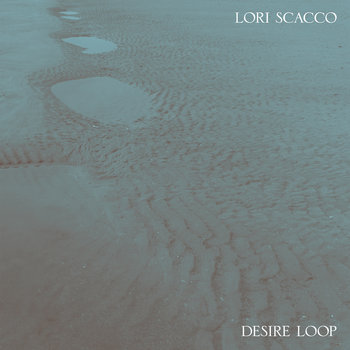
"I think of myself as a naturalist no matter the palette," says Lori Scacco, the New York multi-instrumentalist, composer, and electronic musician whose new album, Desire Loop, is Mysteries of the Deep's third full-length LP.
Natural indeed: Scacco's music effuses warmth, enveloping listeners like a gentle embrace. Her first album, Circles, was released in the early aughts on Eastern Developments, an imprint co-founded by Guillermo Scott Herren, aka Prefuse 73. She spent much of the interim period composing music for performance, film, and classical ballet, influences audible throughout Desire Loop.
Flush with incandescent scree, bubbly synthesizer, and easygoing dulcet tones, the album's simplicity belies its emotional impact. At times — "Cosmographia" and "Other Flowers," for instance — Scacco's songwriting approaches a therapeutic purity that feels nearly virtuous, immaculate. This is by design: she wrote this album as counterpoint to today's destructive political landscape. "I had to create an empathic means of access for myself, and in turn, for the listener, using the core of all that I value as my way into the music,” she explains.
"I wanted to provide a vehicle for the listener to impart their own emotional experience without imposing my own meaning. I found myself returning to that space over and over again.” After listening to Desire Loop, we expect that you will, too.
More information can be found here.
Read More
- Administrator
- Albums and Singles
On Don’t Look Away, Tucker contrasts traditional song structure with experimental collage and rich orchestral arrangements. Featuring guest appearances from Nik Void (Carter Tutti Void, Factory Floor) on vocals and Daniel O’Sullivan on viola, the album emerged during a particularly prolific creative period for Tucker that saw him composing for the Schauspielhaus Zürich in Switzerland, and establishing UNDIMENSIONED, his own independent publishing imprint.
Following the release of Don't Look Away, Tucker will be heading out on a European tour, including a special album release show at the Shacklewell Arms in London on 5th September. Special guests include Paper Dollhouse and a DJ sets from the crew behind new archival imprint Disciples.
|
Pre-order Alexander Tucker's Don't Look Away:
http://thrilljockey.com/products/don-t-look-away
Read More
- Administrator
- Albums and Singles
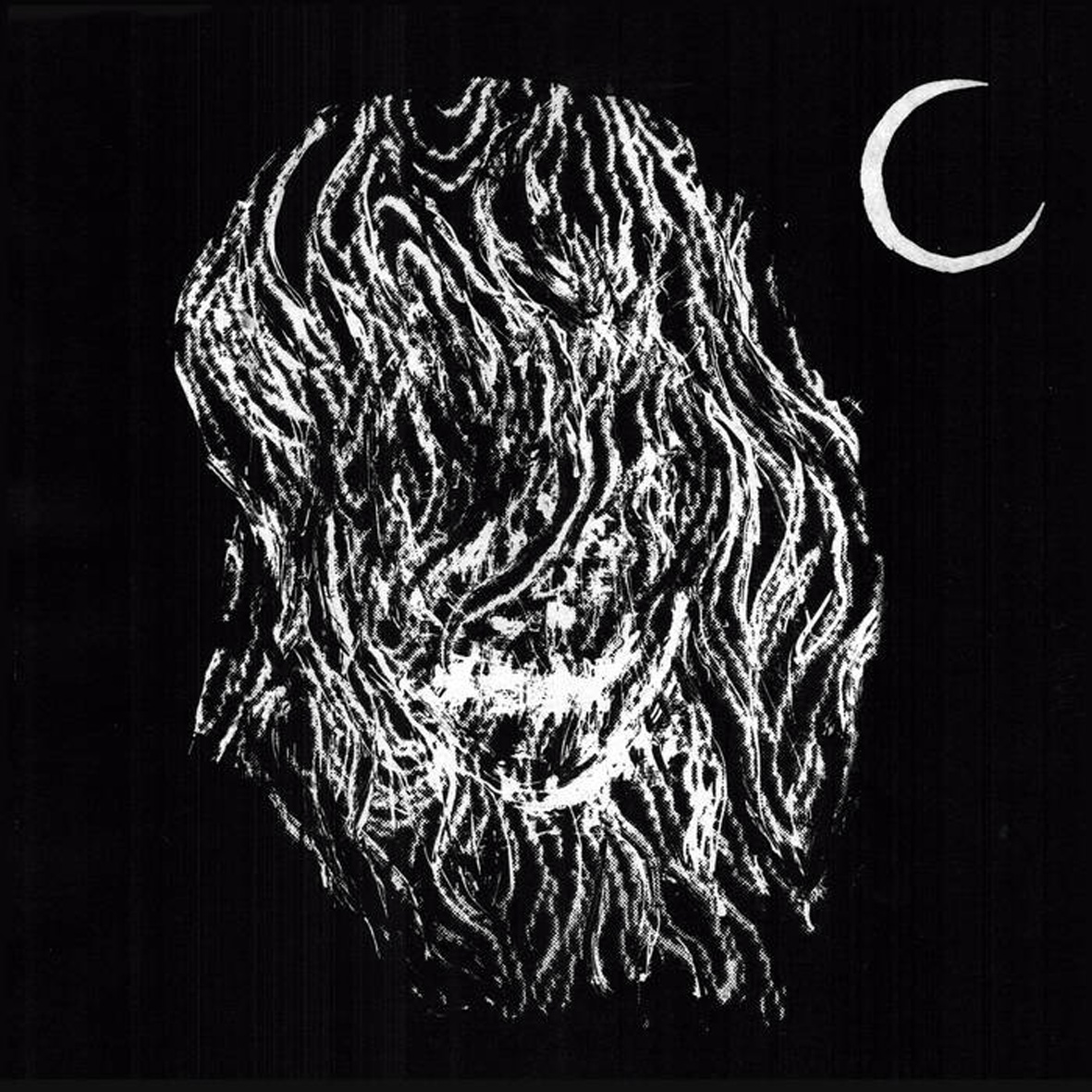 Launching their Lower Floor imprint in 2017 has turned out to be one of the best ideas that Wolf Eyes have ever had, establishing a new outlet that thus far has a near-perfect track record of only releasing the band's strongest and most coherent material. This latest installment, a reissue of an early masterwork from the Aaron Dilloway years, continues that hot streak beautifully. Dread is a murderers' row of grimy, shambling, and ruined delights, featuring two absolute monster bookends with no filler or half-baked experiments in between. This album is broken, thuggish, and ugly in all the best ways–I cannot think of any other Wolf Eyes album quite as simultaneously focused and inspired as this one.
Launching their Lower Floor imprint in 2017 has turned out to be one of the best ideas that Wolf Eyes have ever had, establishing a new outlet that thus far has a near-perfect track record of only releasing the band's strongest and most coherent material. This latest installment, a reissue of an early masterwork from the Aaron Dilloway years, continues that hot streak beautifully. Dread is a murderers' row of grimy, shambling, and ruined delights, featuring two absolute monster bookends with no filler or half-baked experiments in between. This album is broken, thuggish, and ugly in all the best ways–I cannot think of any other Wolf Eyes album quite as simultaneously focused and inspired as this one.
There is truly no better way to open a Wolf Eyes album than a piece like "Burn Your House Down," in which Nate Young repeated howls that he is going to do exactly that over a shuddering and heaving mechanized nightmare held together by an obsessively swooping and plunging bass snarl.As brutal as it is, "Burn Your House Down" is perversely elegant in its simplicity: there is one strong motif and one (very) strong lyrical sentiment that relentlessly move forward through a howling chaos of broken beats, sputtering electronics, strangled feedback, and mangled samples.Also, it is a remarkably concise piece, as is the later "Let the Smoke Rise."On more recent albums, the band's best material tends to take the shape of longer pieces, but Wolf Eyes had some of the lingering intuitions of a rock band at this stage and it suited them well: Dread is ostensibly a noise album, but it does not exactly feel like one, as there are skeletons of hooks, rhythms, and songs within its burning wreckage.Also, Young's world-weary, stream-of-consciousness vocals give Wolf Eyes a humanity and charisma that is lacking in most other noise artists' work (even if it is arguably an anti-charisma).There are certainly moments of brute force here, but Young, Dilloway, and John Olson generally worked quite hard to be menacing through mood and texture rather than raw power.
Even the longer pieces on Dread feel like ingeniously crafted "songs" rather than sprawling experiments–they just take a more slow-burning approach in which several broken and meandering threads unexpectedly converge into something of real power.The 14-minute "Desert of Glue/Wretched Hog" is an especially deft example of that, as it initially sounds like someone just dicking around with a thudding, go-nowhere drum machine pattern amidst some random electronic squiggles.Once Young's vocals appear, however, it coheres into an endearingly lurching, sparse, and fitful pulse embellished by a surreal miasma of tape-based lunacy (elephant noises are an especially delightful recurring theme).At some point, it all seemingly dissolves into indulgent chaos, yet a stomping new beat soon reforms to resurgently bulldoze its way through a cacophony of splattering electronics and distressed-sounding didgeridoo.When Young reappears to announce that he is "coming on like a wretched mess," he fucking means it and he is entirely correct.I had a much harder time warming to the 11-minute "Half Animal, Half Insane" because it takes such a long time (roughly 8 minutes) to build up to its gloriously dumb and pummeling crescendo, but it is actually a dark horse candidate for the album's coolest song.Once it catches fire, it feels like a compellingly grotesque caricature of meat-headed, "angry guy" rock–like Phil Anselmo bravely soldiering though Pantera's final song at a gig where all the instruments are broken and on fire and a chittering swarm of robotic insects has engulfed the audience.
The album closes with its second brilliant "single," the 4-minute "Let the Smoke Rise."It shares the deceptively elegant (if slime-coated) simplicity of the album's opener, but lowers the intensity to a bubbling simmer: the piece is little more than Young's sneering and nihilistic anti-poetry over an erratic and heaving groove that sounds like a poorly built machine on its last legs.Also, one of the lines sounds a lot like "Baby, I'm Oedipal," which is very amusing.In any case, it is the fourth great song in a row on Dread: all killer, no filler.I dearly wish I had heard this album sooner.Like many people, I first encountered Wolf Eyes with 2004's Burned Mind.I liked it, but it definitely did not motivate me to try to track down the bands' earlier releases, as I would never have guessed that Wolf Eyes were much better a few years earlier (for one or two albums, at least).I love some of their recent albums too, so it is debatable whether Dread is Wolf Eyes' absolute zenith, but I have no doubts about whether it is essential (it is).Dread is a perfect and improbable confluence of disparate aesthetics that no one else could ever replicate: a potent and visceral collision of high-brow and low-brow that deftly avoids the weaknesses of either.There is nothing else quite like Wolf Eyes at their peak, an experience akin to being stomped by a violent biker gang over a disagreement about their views on musique concrète or Jacques Derrida's indirect influence on underground rock.
Read More
- Administrator
- Albums and Singles
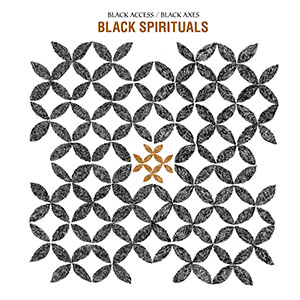 As the pairing of drummer/percussionist Marshall Trammell and Zachary James Watkins on guitars and electronics, Black Spirituals has had a short, but overwhelmingly brilliant run of experimental albums. Black Access/Black Axes represents the final release in this arrangement (Watkins will be continuing to use the name, however, but with different collaborators), and also a band at the their peak. Drawing from the worlds of noise, jazz, and rock—but never easily settling in to any of those more limiting genres—the album instead encompasses everything, and makes for one of the most multifaceted, and amazing, albums so far this year.
As the pairing of drummer/percussionist Marshall Trammell and Zachary James Watkins on guitars and electronics, Black Spirituals has had a short, but overwhelmingly brilliant run of experimental albums. Black Access/Black Axes represents the final release in this arrangement (Watkins will be continuing to use the name, however, but with different collaborators), and also a band at the their peak. Drawing from the worlds of noise, jazz, and rock—but never easily settling in to any of those more limiting genres—the album instead encompasses everything, and makes for one of the most multifaceted, and amazing, albums so far this year.
There are distinct themes of reappropriation and decolonialization throughout the record, which are all clearly aligned with the roughly defined styles that make up Black Access/Black Axes.First, the jazz influences in Trammell’s drumming and the subtle rock and roll elements in Watkins’ guitar work echo two styles of music that were initially Black creations, but later co-opted (and in many cases diluted) by White artists who profited on their imitations.Here those signifiers are presented in a unique, fresh context that neither fully sound like their original forms, nor their distilled modern interpretations, but instead something entirely new and unique.
More subtle, in my opinion, would be that these jazz and rock tendencies are recast in an overall more avant garde and experimental context.The former has too often been within the purview of snooty academia, limiting both race and social class among its earliest practitioners.The world of noise, however, ends up being the most damning, with its use of provocative themes that have too often embraced fascism, bigotry, and misogyny.Either way, both styles have never been anything close to inclusive, but Black Spirituals' work sonically fits into both, but also transcends such a label.
It may seem like a minor detail, but it is an important distinction:Black Spirituals is not a duo, but a duet of two soloists working together.Meaning that, any one of the ten pieces spread across the two records could be either just Trammell or Watkins' work absent the other, and would still make for a powerful record.This fact is made apparent towards the middle of the album, with "Want" being largely understated electronics and field recordings (Watkins' specialty), before immediately transitioning into the rapid, amazingly complex solo drumming of Trammell on "Anti Up".
When the two are performing together, however, the final product is even more marvelous.The noisy opening and feedback squall of "Inference" heralds Trammell’s hyperkinetic drumming, a tight, dynamic pairing of dissonant elements that are soon melded together by Watkins’ guitar, which drifts between aggressive squeal and melodic motifs.Surging electronics and lighter rhythms open "Treatment" on a more calm, meditative note, but the two dial things up in time, with the drums becoming faster and more intense, and electronics and guitar getting grittier and rawer with each passing moment, reaching a pinnacle of organized chaos before then rolling back.
The calmer moments on Black Access/Black Axes are no less essential either."Condition" may open with an aggressive electronic buzz, but Watkins keeps some shimmering lighter tones deep in the mix.Trammell’s drumming is a bit more restrained tempo-wise and it makes for a greater sense of tranquility throughout.The first half of "Dissension" is also somewhat peaceful, with a well-controlled electronic drone and sparse, intricate drumming throughout.Afterwards, however, it starts to build, with the rhythms becoming gradually louder and more forceful, and soaring improvised guitar leads.
While I am sad to hear that this will be the final Black Spirituals record in this configured, it cannot be argued that in this duet form, Marshall Trammell and Zachary James Watkins are going out at the top of their game as performers and collaborators.Black Access/Black Axes is a wonderfully multilayered record that covers everything, from meditative complexity to the undeniable joy that loud, distorted electric guitars can bring.Which is another defining facet of this record:the spirituals part of the project’s name is quite descriptive, because even among the noise, distortion, and pounding rhythms, every song here is imbued with a sense of joy and celebration.Even within the ever-declining American social climate that Black Spirituals draws from here, there is an undeniable sense of positivity, strength, and joy.Black Access/Black Axes is a massive record, and one that is easy among the best I have heard in years.
samples:
 
Read More
- Administrator
- Albums and Singles
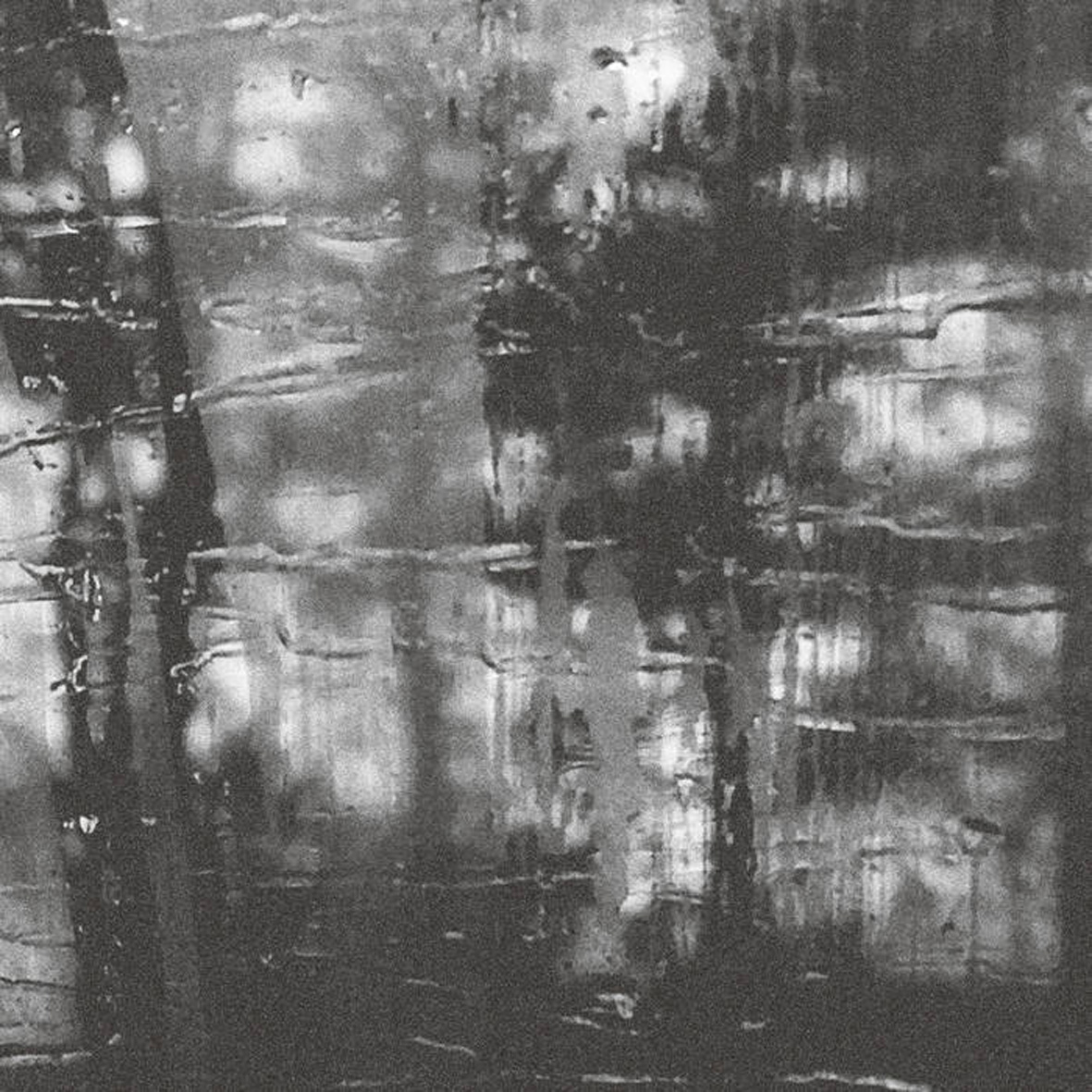 This is Westberg's first solo album as a non-Swan, an occasion he chose to celebrate by radically transforming his working methods: After Vacation abandons his characteristic single-take/no-overdubbing purist high-wire act for a far more expansive, composed, and produced aesthetic. The latter bit is especially significant, as Westberg credits producer Lawrence English as something of a collaborator and After Vacation quite fits comfortably among Room40's more ambient-drone releases. Admittedly, that approach dilutes Westberg's magic a bit, as his home-recorded releases are a bit more distinctive than this one. After Vacation is a fine release in its own right, however, as Westberg makes the most of his expanded palette, crafting a superb (if understated) headphone album that reveals vibrant layers of depth, nuance, and buried melody with attentive listening.
This is Westberg's first solo album as a non-Swan, an occasion he chose to celebrate by radically transforming his working methods: After Vacation abandons his characteristic single-take/no-overdubbing purist high-wire act for a far more expansive, composed, and produced aesthetic. The latter bit is especially significant, as Westberg credits producer Lawrence English as something of a collaborator and After Vacation quite fits comfortably among Room40's more ambient-drone releases. Admittedly, that approach dilutes Westberg's magic a bit, as his home-recorded releases are a bit more distinctive than this one. After Vacation is a fine release in its own right, however, as Westberg makes the most of his expanded palette, crafting a superb (if understated) headphone album that reveals vibrant layers of depth, nuance, and buried melody with attentive listening.
The old adage "necessity is the mother of invention" goes a long way towards explaining the niche that Norman Westberg has quietly carved out for himself with his home recordings over the last few years.So many great and groundbreaking albums over the last several decades have been directly or indirectly birthed by hurdles like primitive recording equipment, cheap gear, or pure technical ineptitude.In Westberg's case, the challenging constraint was admittedly a self-imposed one, yet it was no less effective in steering him into a compellingly unique style.Given that he has had such success with his brand of loop-based, performative minimalism, it was something of a bold choice to open himself up to a potentially paralyzing world of infinite possibilities with this latest outing.Then again, maybe it was not: Westberg's previous work could be interpreted as an intimate and understated counterbalance to his work in Swans–now that Swans are no more, his solo albums have become his primary canvas.In any case, it is interesting to see the various directions that he uses his newfound freedom to explore on After Vacation.Of the album's many threads, the opening "Soothe the String" perhaps takes the most predictable and instantly gratifying path, embellishing Westberg's characteristic drones and swells with a melodic motif that feels like a hauntingly Lynchian take on Morricone-influenced noir.The closing title piece has roughly the same idea, but heads in a far more sun-dappled and meditative direction, as Westberg languorously explores an acoustic guitar melody over a serene backdrop of warmly shimmering drones and a chorus of crickets.
Both are fine pieces, but the more I listen to After Vacation, the more I find myself increasingly drawn to the more subtle work that lies between them.In particular, the 12-minute epic "Levitation" stands as the album’s understated centerpiece, lazily unfolding as a rippling dreamscape of shimmering guitar drones over a wobbly submerged pulse.Elsewhere, "Sliding Sledding" dabbles in elegantly blurred slow-motion psychedelia a la Expo '70, while "Drops in a Bucket" approximates a guitar-based twist on the hallucinatory "sci-fi tribal" aesthetic pioneered by Zoviet France and Rapoon.The latter is one of the most deceptively sophisticated and immersive pieces on the entire album, as its warbling organ-like motif slowly winds its way through a shuddering, throbbing sea of brooding loops.My other favorite piece is "Norman Seen As An Infant," which delves into similarly haunting territory, as Westberg weaves a subtly vibrant and shimmering web of ghostly feedback, murky layering, and a billowing fog of darkly impressionistic overtones.
Contextualizing After Vacation within the existing arc of Westberg’s solo discography is a bit of a tricky puzzle, as it simultaneously feels like a leap forward and a partial erosion of what made his work great in the first place.That is more of a testament to exquisite pleasures of hearing a master work in real-time than a legitimate shortcoming here though–I have no reservations at all about calling After Vacation another fine album.However, there is a bit an uneven/transitional feel that muddies the waters a bit, as though Westberg is trying out several new directions at once with varying degrees of success.I suspect a lot of that feeling unavoidably comes from my personal expectations for what a Norman Westberg album should sound like, however, so someone with less of a history with his work would probably not be plagued with any such doubts at all.More importantly, After Vacation is easily the most accessible of Westberg's releases, so it is the most likely to lure in such listeners.They will not be disappointed, as there is quite a lot to love here regardless of whether the album is viewed on its own merits or within the context of Norman's evolution as an artist–his hit rate remains as impressive as ever.And frankly, an aesthetic jailbreak like this had to come along eventually, as there was no way that Westberg could continue within his narrow constraints forever without starting to repeat himself.I did not quite expect it to happen this soon, but it is certainly a pleasant surprise that he was able to manage the transformation so seamlessly and unveil a few fresh classics to boot.
Read More
- Administrator
- Albums and Singles
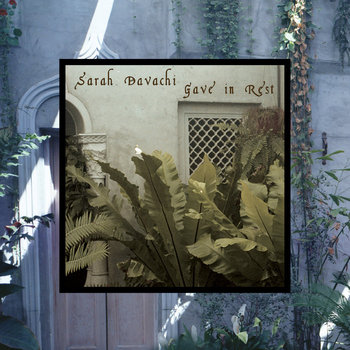
Sarah Davachi has quickly risen in prominence since her first release five years ago, and Gave In Rest represents her highest artistic achievement. By infusing her compositional style within a predilection for medieval and Renaissance music, Davachi unearths a new realm of musical reverence, creating works both contemplative and beatific, eerie yet essentially human. Gave In Rest is a modern reading of early music, reforming sacred and secular sentiments to fit her purview and provide an exciting new way to hear the sounds that exist around us.
Between January and September of 2017, Sarah Davachi lived in flux; storing her belongings in Vancouver, she spent the summer in Europe, occasionally performing in churches and lapidariums and seeking respite from her transitional state while surrounded by such storied history. Gave In Rest echoes that emotional state of solitude and ephemerality, reaching towards familiar musical landscapes but from oblique perspectives.
"I've always been a pretty solitary person, but that summer I discovered quiet moments to be increasingly valuable," says Davachi. "I became engaged in private practices of rest and rumination, almost to the point of ritual." Though not religious, she sought ecclesiastic environments, compelled by "the quietude, the air of reverence, the openness of the physical space, the stillness of the altars." She sat for hours in muted spaces and listened to how church instruments augmented them – their pipe organs, their bells, their choral voices – and resolved to, "tap into that way of listening." She set a goal to musically embody this secular mysticism, and Gave In Rest is the result.
Out September 14th, 2018. More information can be found here and here.
Read More
- Administrator
- Albums and Singles

Prior to focusing his efforts on running Recital and publishing gorgeous works by the likes of Ian William Craig, Loren Connors, Roger Eno, Sarah Davachi and many more, not to mention working on his own ambitious recording projects like Music for Public Ensemble, Sean McCann was one of the most prolific artists within the whole experimental cassette underground, issuing upwards of 40 releases within the span of 2008 to 2011.
I caught on to McCann’s music during this time period as a contributor to the late Foxy Digitalis experimental music blog. I received a copy of his early Jasmine tape in my first massive box of promos and would go on to acquire a surprising number of his titles in the ensuing years. As anyone who actively follows this area of music can attest, though, it can be rather challenging keeping up with everything that comes out and inevitably certain releases go out of print before you catch wind of them.
Fountains, initially a double CD-R on the short-lived Roll Over Rover imprint, was one of those releases that slipped by me at the time. It was only within this past year while corresponding with Sean about some of his unreleased material that I was guided back to Fountains, and I'm so very grateful for that. Within McCann’s vast back catalog, Fountains is arguably his strongest and most cohesive ambient statement. There is an undeniable depth, beauty, and expansiveness to the layers of sound that spill forth from this release, possessing the same time blurring and cranium clearing qualities that would wet the weepers of Budd, Bryers, Chalk, and even Eno himself. In the program notes that Sean penned for this reissue, he writes that after his move from San Francisco to Los Angeles he was "hell-bent on recording an ambient 'masterwork' album." He goes on to state, "I tried for months and could not make it work. It was going to be a double-LP that would have been the first Recital edition. Ultimately I gave up and moved onto the Music for Private Ensemble project." Perhaps it was the proverbial 'can't see the forest for the trees' scenario, but I’m convinced that the passage of time will shed new light on Fountains and many more people, maybe even Sean, will come to view it as the ambient masterpiece that it is.
Round Bale Recordings is pleased to present an expanded edition of the already expansive Fountains that includes five unpublished tracks from roughly the same time period, adding up to a total running time of 2 hours and 16 minutes. This double cassette edition is housed in an oversized poly-trim case with an insert and liner notes written by Sean McCann. Download codes are included in each set.
Read More
- Administrator
- Albums and Singles
Blue Chemise documents the hermetic soundworld of Australia's Mark Gomes. Daughters of Time follows 2017's brilliant full-length Influence on Dusk, released in micro-edition on Gomes' own Greedy Ventilator imprint. It is an elegiac set of vignettes recorded straight to dictaphone with minimal post-production. For me these pieces function in a manner akin to Loren Connor's evocative Airs, conjuring poignant, intangible senses of longing and nostalgia then disappearing well before overstaying their welcome. Regarding their genesis, Gomes points to a quote from Australian artist Robert Hunter: "It's like I'm external to them. They develop their own assertion and character; their becoming finished is a thing they decide themselves. It's unexplainable."
More information can be found here.
Read More
- Administrator
- Albums and Singles

Highly synergistic split from ELEH/Caterina Barbieri featuring two sides of similar audio dimensions. These two electronic sound poems slowly unfurl rich timbre and harmonics with an austere stillness that is, somehow, ever-changing. It hardly matters whose side is whose.
More information is available here.
Read More


